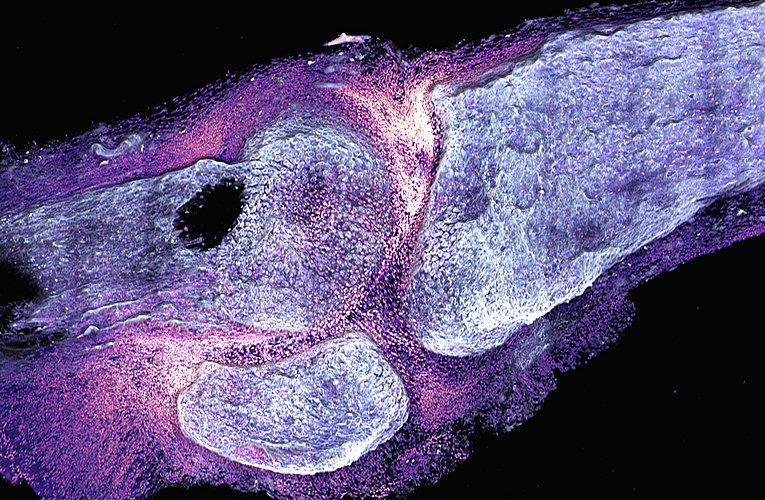What is Familial Mediterranean Fever (FMF)?
Familial Mediterranean fever is a rare autoinflammatory disease in which the body causes inflammation "on its own". The disease occurs in short successive episodes and disappears again, so that it is often not visible for a long time. The name "familial" already indicates that the disease is inherited. The cause is a mutation in the MEFV gene (Mediterranean Fever Genotype). The mutation causes a protein to be produced that activates inflammation.
How does the disease manifest itself?
The disease is characterised by sudden attacks of fever over a period of 12 to 72 hours, which occur together with abdominal and joint pain as well as reddening of the skin on the back of the foot, ankle and lower leg. A distinction is made between type 1 and type 2. Type 2 is a rare clinical picture. The symptoms such as fatigue, flatulence, diarrhoea, nausea, vomiting, weight loss, joint pain or water retention are quite unspecific.
How do you recognise FMF?
Since the symptoms occur with many different diseases, the disease is difficult to recognise, patients often have a long suffering path behind them. After extensive infectiological, haematological and rheumatic diagnostics, examinations are carried out according to the so-called tel-hashomer criteria. If two major criteria (fever and serositis (inflammation of the mucous membranes)) and two minor criteria (recurrent attacks of fever and reddening of the skin) are recognisable, the assumption of Familial Mediterranean Fever is consolidated.
What can be done about it?
In order to stop the fever attacks and the type 2 symptoms, most patients are helped by a drug therapy with colchicine. Since the disease cannot be cured, the active ingredient, a naturally occurring substance found in autumn crocus, must be taken for the rest of the patient's life. During relapses, anti-inflammatory and painkilling drugs are prescribed.
Tips for everyday life
Grapefruit and drugs such as macrolide antibiotics or calcium antagonists like Diltiazem should not be taken while taking colchicine.
Consultation hour for Rheumatology and Immunology
Special consultation hour
Mehul Lapsiwala
Panagiotis Garantziotis
Zeiten
Monday - Thursday
07.30--10.00 h and 14.00--15.30 h
Friday
07.30--11.00 h
Internistisches Zentrum
Erdgeschoss, Bauteil C
Ulmenweg 18
91054 Erlangen
Appointments only upon consultation
Use the patient app of UKER to schedule your appointment.
Alternative contact options:
Phone: +49 9131 85-34742
Fax: +49 9131 85-36448
or by e-mail to m3hsa(at)uk-erlangen.de
Hinweis
Due to the high volume of patients, initial appointments can only take place after telephone consultation between the referring colleagues and the clinic's duty physician.
Downloads
Required documents
- Certificate of Insurance (health insurance card)
- Allocation
- Copies of the preliminary findings
- X-ray images
- Reports from previous hospitalizations
- in case of initial appointment, completed questionnaire (see documents)




